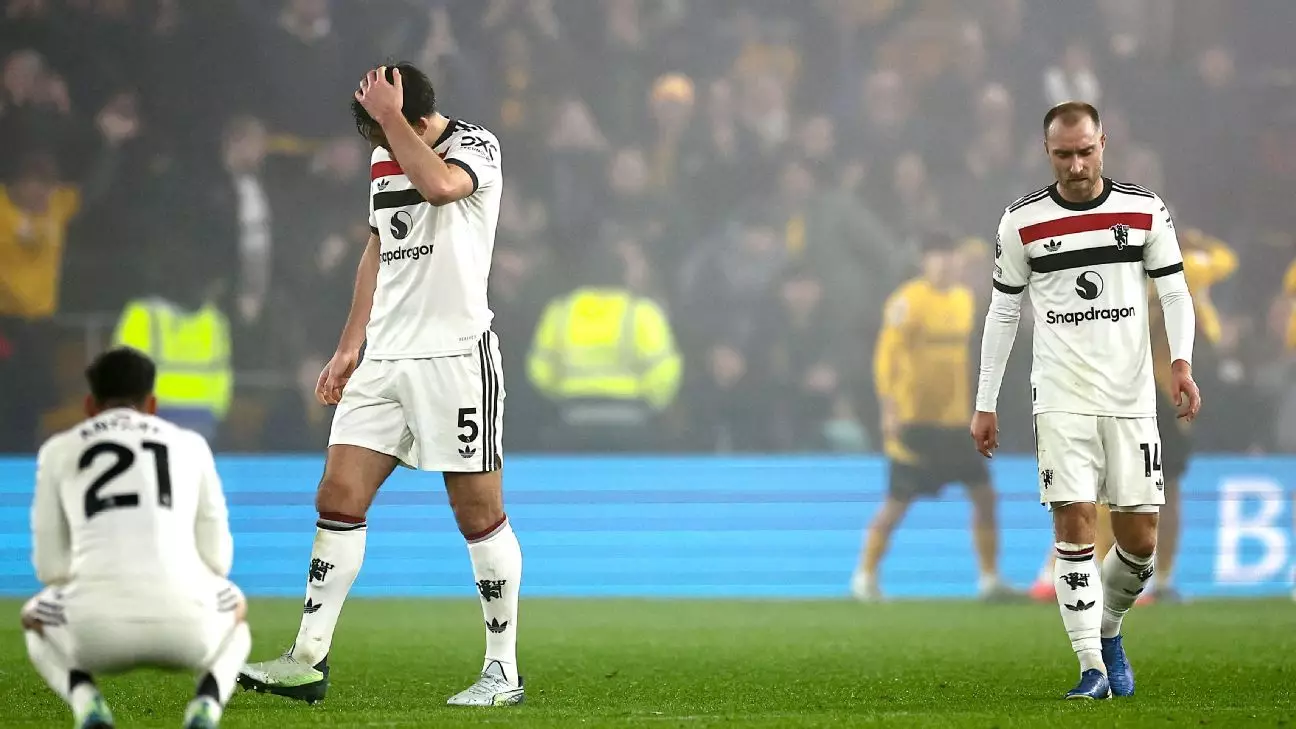Manchester United is grappling with a crisis in both performance and morale, as evident from their recent 2-0 defeat to Wolverhampton Wanderers. The match, which sealed a third consecutive loss for the club, underscores the mounting pressure on manager Ruben Amorim. Since taking the helm from Erik ten Hag, Amorim has faced an uphill battle, with United managing only two victories in eight Premier League outings. This concerning trend raises questions about the squad’s cohesion and the effectiveness of Amorim’s tactical approach.
Leadership instability often disrupts team dynamics, and the transition from Ten Hag to Amorim illustrates this perfectly. The players may still be adjusting to Amorim’s philosophy and training methodologies, which may contribute to their current shortcomings on the pitch. The dismissal of captain Bruno Fernandes just two minutes into the second half against Wolves left the team vulnerable, exposing underlying issues surrounding discipline and game management. Amorim pointed out that a lack of aggression is a crucial factor impeding their performance, but addressing this issue amid ongoing struggles presents a significant challenge.
The loss to Wolves was particularly difficult to digest because it was not just a matter of the scoreboard; it pinpointed tactical deficiencies. Matheus Cunha’s goal from a corner exemplified the poor set-piece defending that has characterized United’s recent performances. This incident reveals a lack of attention to fundamental defensive duties, an alarming oversight for a club of Manchester United’s stature. Furthermore, Hwang Hee-Chan’s late goal compounded the misery, indicating that the team is often unable to maintain composure during critical match moments.
Amorim was candid in his post-match reflections, recognizing the need for improvement in team relationships and tactics. He mentioned that the team is in a phase where they are more focused on finding immediate solutions to win rather than refining their approach through training. This perspective, while understandable given recent results, could inhibit long-term development. The club’s management needs to support Amorim in creating a balanced agenda that integrates both immediate results and strategic growth for the squad.
As the season progresses, the pressure will only mount for Amorim and his players. With only four wins across all competitions, the stakes are higher than ever. The current trajectory suggests that unless there is a marked change in attitude and performance, the team may struggle to return to the form that has historically characterized Manchester United. Fans and stakeholders alike are hoping for a significant turnaround as they look ahead to upcoming fixtures, hoping that Amorim can instill a sense of urgency and resilience within the squad to reclaim their competitive edge.

Leave a Reply